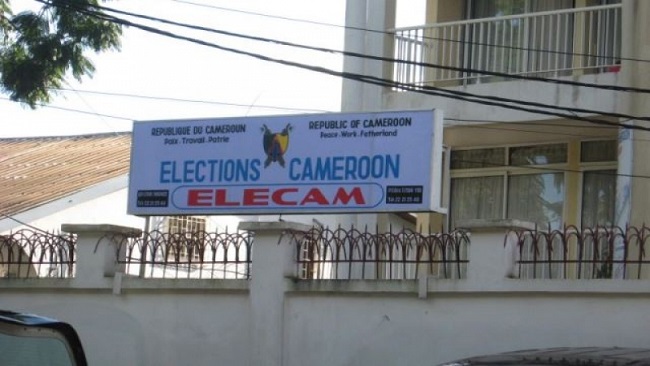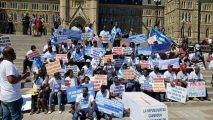13, September 2024
Senegal’s president dissolves parliament to call a snap legislative election 0
President Bassirou Diomaye Faye of Senegal dissolved the opposition-dominated parliament on Thursday, paving the way for a snap legislative election six months after he was voted in on an anti-establishment platform.
The new election has to take place within the next 90 days, according to the country’s constitution. Analysts say that Faye’s political party, PASTEF, has a high chance of securing a majority, given his popularity and his victory margin in the presidential election.
Faye, 44, won the vote in April to become Africa’s youngest elected leader, less that two weeks after he was released from prison.
His rise has reflected widespread frustration among Senegal’s youth with the country’s direction — a common sentiment across Africa, which has the world’s youngest population and a number of leaders accused of clinging to power for decades.
During the presidential campaign, he promised widespread reforms to improve the living standards of ordinary Senegalese, including fighting corruption, reviewing fishing permits for foreign companies, and securing a bigger share from the country’s natural resources for the population. He was elected with 54% of the votes.
But six months later, these pledges have yet to materialize.
Faye and Ousmane Sonko, the country’s prime minister and a popular opposition figure who helped catapult Faye to victory, have blamed the parliament. Their political party, PASTEF, does not hold a majority in the assembly, which Faye says has blocked him from executing the promised reforms.
In June, the Benno Bokk Yakaar coalition led by the former President Macky Sall cancelled a budgetary debate in a dispute over whether Sonko was required to issue his government’s policy roadmap, with Sonko arguing that he was not required to.
The tensions between the government and the parliament are “unprecedented,” Alioune Tine, founder of Afrikajom think tank, told The Associated Press. “It is all the result of the dysfunctions of the electoral process of the 2024 presidential election,” Tine said.
Faye’s decision to dissolve the national assembly does not come without risks, Gilles Yabi, political analyst and founder of WATHI think tank, told the AP.
The assembly has until the end of December to vote on the budget for next year, but new legislative elections might make it hard to meet this deadline.
The presidential election in April tested Senegal’s reputation as a stable democracy in West Africa, a region rocked in recent years by coups and attempted coups.
Both Faye and Sonko were released from prison less than two weeks before the vote following a political amnesty announced by outgoing President Macky Sall. Their arrests had sparked months of protests and concerns that Sall would seek a third term in office despite term limits. Rights groups said dozens were killed and about 1,000 were jailed.
Over 60% of Senegalese are under 25, and 90% work in informal jobs. Senegal has been hit by skyrocketing inflation in recent years, making it difficult for them to get by.
The country is also the major source of irregular migration to Europe, with thousands leaving every year on rickety, artisanal fishing boats in search of economic opportunities.
Thursday’s announcement came days after one such boat carrying almost 90 people capsized, killing at least 39.
Source: AP


























28, September 2024
Race for the White House: Harris visits border to neutralize weak spot against Trump 0
Kamala Harris was due to deliver a tough-on-illegal-migration message after visiting the US-Mexico border Friday, directly tackling the politically explosive issue in a bid to blunt one of Donald Trump’s main attack lines in their fight for the White House.
The US vice president’s trip to Arizona — her first to the border since replacing President Joe Biden as Democratic nominee in July — comes as polls show illegal migration remains one of her biggest vulnerabilities against the Republican.
Harris will call for tougher security in the speech in the border town of Douglas and accuse Trump of killing attempts to pass a bipartisan migration bill in hopes of boosting his own election chances, her campaign said.
“The American people deserve a president who cares more about border security than playing political games,” she plans to say, according to her campaign.
A campaign official told reporters that Harris will announce that as president she would strengthen border restrictions recently put in place that successfully stemmed the flow of undocumented crossings.
Harris made an unannounced visit to the border wall in Douglas, where she met with Border Patrol officials and was photographed alongside the distinctive metal slats at the international frontier.
Arizona is also one of the half-dozen battleground states that are expected to decide the agonizingly close November 5 election, and it is where polls show Harris may have to do the most work.
Former president Trump has turbocharged the border issue in recent weeks as he seeks an edge against Harris, America’s first female, Black and South Asian vice president.
The 78-year-old has called for mass deportations, amplified bogus claims about migrants eating pet cats and dogs, and stepped up his racially charged rhetoric about an “invasion” of illegal immigrants who he claims consist of murderers, rapists and mentally ill people.
Source: AFP